The Best Resume Writing & Interview Tips to Land You the Job
As the saying goes: searching for a job is a full-time job! In a highly competitive job market, the idea of having to stand apart from the crowd can seem overwhelming.
Here at LPC, we have helped countless candidates craft professional resumes and interview for their dream jobs like seasoned vets. So, if you are embarking on a job search, you have come to the right place. Here we have compiled a few of our favorite resume writing and interview tips to help make the journey seem a little less daunting!
Resume Writing Tips
Writing a resume doesn’t have to be a challenge, but it does require thought and care. If your resume is not prepared to optimal standards, your chances of it being considered are slim to none! Here are a few key tips and tricks that every job seeker should follow to produce a resume that will score an interview.
Use Keywords in Your Resume
To accommodate the high volume of resumes many job openings receive, a lot of companies now use an applicant tracking system (ATS) to narrow down the best candidates based on their experience – more specifically, how their experience is listed on their resume as it relates to the job posting.
In the digital age, the likelihood of your resume making it into the hands of an actual human before passing an applicant tracking system is quite low. For this reason, incorporating keywords specifically used in the job description into your resume will greatly increase your chances of getting through to the interview round.
Adjust Resumes & Cover Letters for Each Job
For each job that you apply to, it is important to adjust your resume and cover letter to be as relevant as possible to the job in question. Even if you apply for five jobs that are similar in nature, it will be obvious if the exact same resume is being recycled for each one.
Speaking in generalities may come off as disconnected and vague. Adjusting your documents to specifically reflect the job in question does not require much effort and will really pay off in the long run.
Resume Format is Important
Once your resume does get into the hands of a real person, you need to make sure it is chock full of relevant experience and glowing references that are presented in a polished and professional way. It may seem inconsequential, but the actual physical appearance of your resume holds significant weight.
Everything from the overall resume layout and how you organize your work history all the way down to your font choice can play a role in how you come off to the hiring manager, so choose wisely!

Interview Tips
Congrats! Your expertly crafted resume has proven effective and you have an interview for a great job coming up. Once you make it to this stage of the hiring process, you need to do everything you can to be prepared as possible. The interview is where you make your first face-to-face impression with your potential future employers, so take the time to prepare for anything and everything that may be thrown your way.
The Interview Basics
The following tips may be fairly obvious to some, but it is always a good idea to make sure you have the basics covered when getting ready for an interview. It will help get you into the right headspace to really hit your meeting out of the park. Make a checklist of the following items and ensure that you complete them all:
- Show up with a printed copy of your resume and cover letter
- Arrive 10-15 minutes early
- Make sure you know who is interviewing you and what their position is
- Dress in clean, ironed and professional attire
- After the interview, send a follow-up email to say thank you and reiterate your interest in the position
Do Your Research Before the Interview
Nothing will say ‘unprofessional’ like walking into an interview with no knowledge of the company you are meeting with. Take some time to research the company, the position you are interviewing for, the company’s history and values, industry news, etc. A lot of this information should be easy to find with a few Google searches, and will go a long way during the interview.
Demonstrating that you have a broader understanding of how you will be fitting into the company will show your interviewer that you are looking at the bigger picture and not just concerned about a paycheck.
Prepare for Common Interview Questions
Depending on the job, the industry-specific questions you will be asked are going to vary quite a bit. But it is almost guaranteed that every interview you go on will ask a handful of common questions that are relevant to most workplace scenarios. Don’t overlook or underprepare for these questions – they are your chance to give your interviewer some insight about yourself and how you will act in this position. Some of the most common questions include:
- Tell me a little bit about yourself?
- What are your greatest strengths and weaknesses?
- Where do you see yourself in 5-10 years?
- Tell me about a difficult workplace problem you encountered and how did you handle it?
If you prepare answers with tangible examples to a few of these questions, you will leave a great first impression with your interviewer.
What are some of your go-to resume and interview tips that have helped you land a job in the past? Leave them in the comments below! And, if you are looking for a new position, reach out an LPC recruiter – we are here to help.
















